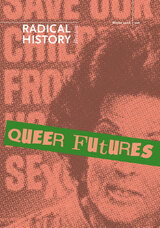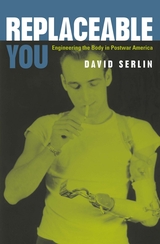
Drawing on archival research and other primary materials, as well as on methods from labor history, ethnic studies, performance studies, and political biography, this special issue explores how historical forces and cultural contexts have produced disability as a constantly shifting and socially constructed concept. One essay examines how Western definitions of disability imposed during colonial rule shaped Botswanan perceptions of disability. Another looks at labor activism among blind workers in Northern Ireland in the 1930s; a third essay, drawing on previously untranslated political texts by disabled writers and activists from the Weimar era, dispels the simplistic assessment of the disabled as complacent in the face of the Nazis’ rise to power. Other essays interpret U.S. radical Randolph Bourne as a philosopher of disability politics and chronicle the emergence of a disabled feminist theater practice in the 1970s and 1980s.
Contributors. Diane F. Britton, Susan Burch, Sarah E. Chinn, R. A. R. Edwards, Barbara Floyd, David Gissen, Kim Hewitt, J. Douglass Klein, Seth Koven, R. J. Lambrose, Victoria Ann Lewis, Julie Livingston, Paul K. Longmore, Robert McRuer, Teresa Meade, Paul Steven Miller, Natalia Molina, Patricia A. Murphy, Máirtín Ó Catháin, Carol Poore, Geoffrey Reaume, David Serlin, Katherine Sherwood, Ian Sutherland, Geoffrey Swan, Everett Zhang

The contributors to this special issue offer critical perspectives on the many fronts of the global “war on terror” and reveal continuities and discontinuities within familiar strategies of political control, racial discrimination, and state-sanctioned violence. Featured articles explore such issues as the intersection of racism, homophobia, and imperialism at Abu Ghraib; the conundrum faced by economically disadvantaged Latino youth who find themselves doubly targeted by aggressive army recruitment and anti-immigration activity; and the ways that rhetoric and policies of homeland security have provided new legal tools in the ongoing project of defining “real Americans” through exclusion and state violence. Other essays examine the role of the military in civilian spaces, the right-wing assault on progressive historians and on area studies, librarians’ efforts to protect the privacy of their patrons’ records in light of the Patriot Act, and the role of intellectuals in resisting everyday forms of control and surveillance.
Contributors. Barbara Abrash, Lori A. Allen, Jerry Atkin, Rachel Tzvia Back, Francisco E. Balderrama, Beatriz da Costa, Lara Z. Deeb, Eric Hiltner, Martha Howell, Lawrence Jones, Burçak Keskin-Kozat, R. J. Lambrose, Jorge Mariscal, Joseph Masco, Conor McGrady, Quincy T. Mills, Priscilla Murolo, Enrique C. Ochoa, Claire Pentecost, Kavita Philip, Vivian H. Price, Jasbir K. Puar, Eliza Jane Reilly, Natsu Taylor Saito, Ellen Schrecker, David Serlin, Rogers M. Smith, Marc Stein, Matias Viegener, Kath Weston, Maurice B. Wheeler, Jessica Winegar

Contributors to this volume examine historical and contemporary visual practices-Chinese health fairs, documentary films produced by the World Health Organization, illness maps, fashions for nurses, and live surgery on the Internet-in order to delve into the political and epidemiological contexts underlying their creation and dissemination.

Distinguished by its historical approach, “Queer Futures” examines homonormativity as a phenomenon that emerged in the United States after World War II and gained traction in the 1960s and 1970s. One essay compares Anita Bryant’s antigay campaigns in the late 1970s with those of current same-sex marriage proponents to show how both focus on the abstract figure of the “endangered child.” Another essay explores how the Gay and Lesbian Alliance Against Defamation’s organizational amnesia has shaped its often conservative agenda. Other essays include a Marxist reading of the transsexual body, an examination of reactionary politics at the core of the movement to repeal the U.S. military’s “don’t ask, don’t tell” policy, and a history of how “safe streets” patrols in the 1970s and 1980s became opportunities for urban gentrification and community exploitation.
Contributors. Anna M. Agathangelou, Daniel Bassichis, Aaron Belkin, Nan Alamilla Boyd, Maxime Cervulle, Vincent Doyle, Roderick A. Ferguson, Christina Hanhardt, Dan Irving, Regina Kunzel, Patrick McCreery, Kevin P. Murphy, Tavia Nyong’o, Jason Ruiz, David Serlin, Tamara L. Spira, Susan Stryker, Margot D. Weiss


Window Shopping with Helen Keller recovers a series of influential moments when architects and designers engaged the embodied experiences of people with disabilities. David Serlin reveals how people with sensory and physical impairments navigated urban spaces and helped to shape modern culture. Through four case studies—the lives of Joseph Merrick (aka “The Elephant Man”) and Helen Keller, the projects of the Works Progress Administration, and the design of the Illinois Regional Library for the Blind and Physically Handicapped—Serlin offers a new history of modernity’s entanglements with disability.
READERS
Browse our collection.
PUBLISHERS
See BiblioVault's publisher services.
STUDENT SERVICES
Files for college accessibility offices.
UChicago Accessibility Resources
home | accessibility | search | about | contact us
BiblioVault ® 2001 - 2024
The University of Chicago Press









